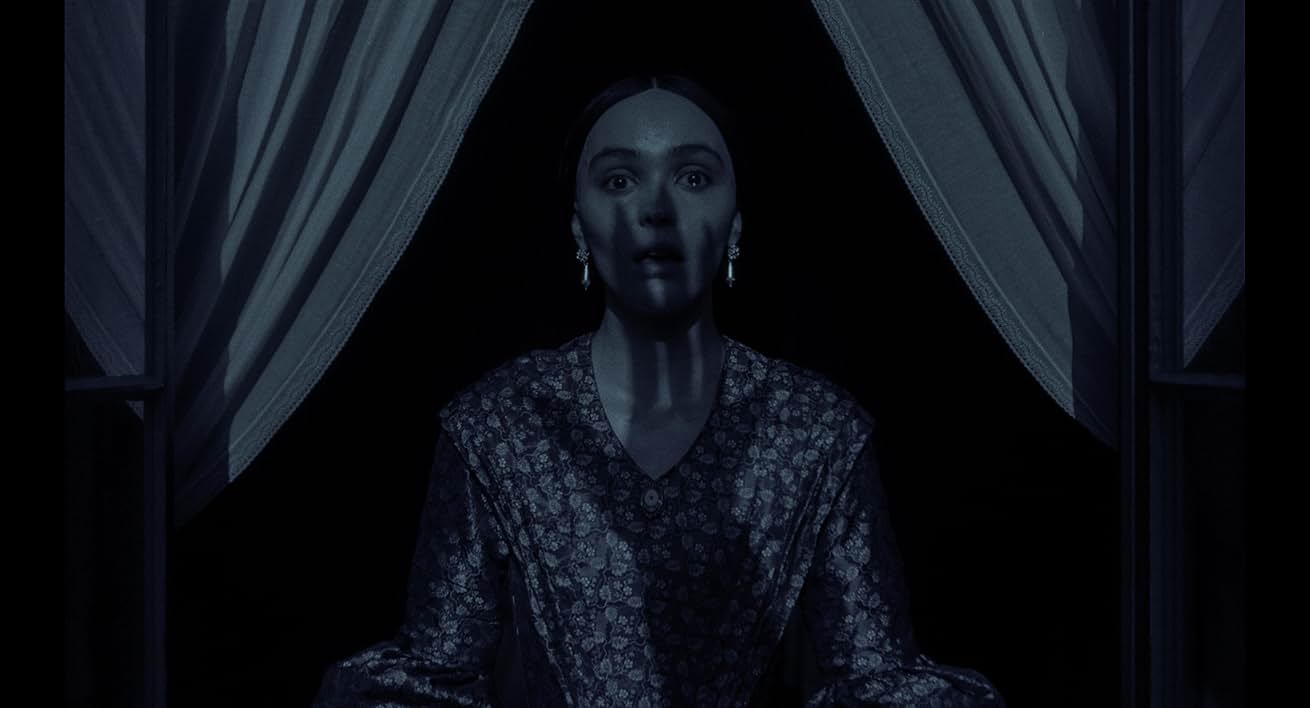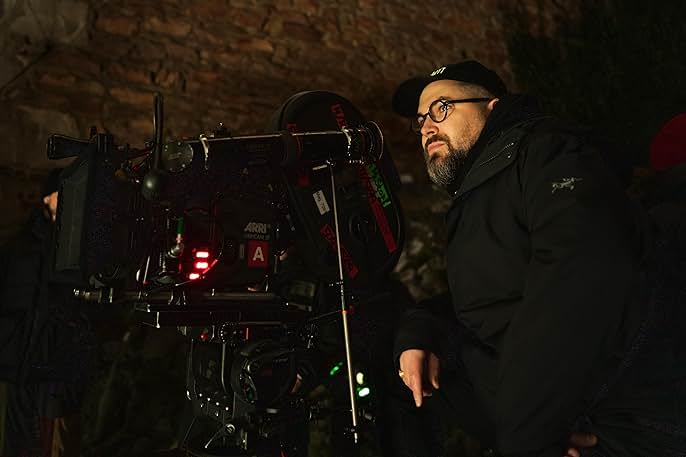It’s notoriously difficult to compete with a cult classic. Incredibly, Robert Eggers’ Nosferatu (2024) appears to do just that. The film pays homage to the original 1922 Dracula retelling, Nosferatu: A Symphony of Horror, putting a modern twist on the timeless, gothic tale. With a star-studded cast and breathtaking direction, it claws its way into the world of horror without draining the life out of the iconic source material.
Set in 1830s Germany during a plague, the film tells the story of a vampire, Count Orlok (Bill Skarsgård), who is infatuated with a young, newlywed woman, Ellen (Lilly-Rose Depp). Orlok’s unsettling presence looms over the story, constantly tormenting Ellen with visions beyond her control. When Ellen’s estate agent husband, Thomas (Nicholas Hoult), travels to Transylvania to settle a property deal with Orlok, he leaves her at her most vulnerable. Ellen’s visions soon become all-consuming, a sign of Orlok’s imminent return to her. It is a classic horror, sure, but the story’s underlying eeriness sets it apart from other mainstream adaptations. There is a reason this narrative has stood the test of cinema time and time again.
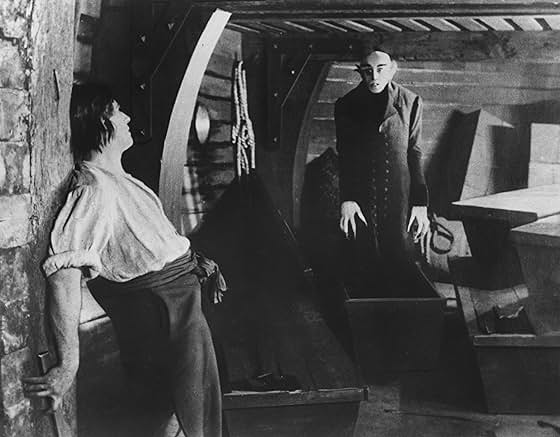

The original 1922 film was truly a testament to its time, setting the tone of modern horror. It was created nearly 20 years after Dracula was released and, despite being unauthorised due to copyright, was undoubtedly influential in the world of film. Critics have gone so far as to call it the pinnacle of German Expressionism, taking viewers on a fearful, psychological journey. Yet, even with the original’s cult following, Eggers’ adaptation doesn’t feel redundant; in fact, it’s quite the opposite. Its premise may not be new, but the cinematography is fresh, and the themes reimagined. In a world where reboot culture runs rampant, it’s brilliant to see something that honours, but still modernises, its predecessor.
Whilst many describe the movie as ‘romantic’, it’s actually built on some incredibly heavy topics. Ellen and Orlok’s relationship itself can be viewed as an allegory for sexual abuse. Orlok is essentially a darkness from her past that continues to haunt her, a darkness she eventually turns to. Eggers portrays this in a way that is not necessarily cut and dry, focusing on the nuance of their connection. The 1922 film is centred around Orlok stealing Ellen’s ‘purity’, an unfortunate and archaic sign of the times. Thankfully, Eggers approaches this differently. There is no doubt Ellen is still being groomed, but the 2024 film doesn’t depict her ‘losing’ anything; instead, it reiterates that women can have sexual desires too. This portrayal is complex, relevant and refreshing – coming at a time when society may just need it most.
Despite the creepy content, the shots themselves keep you entranced. In true Eggers fashion, every single scene is historically accurate and atmospheric, transporting you back to a dire time. There’s a darkness that surrounds each scene, making even the indoor shots look like they are bathed in moonlight.
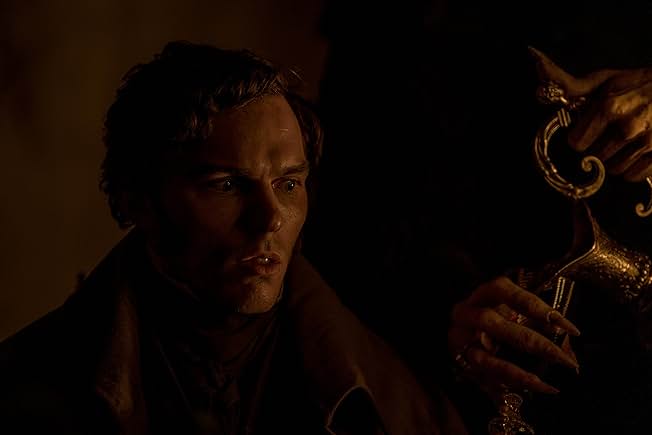
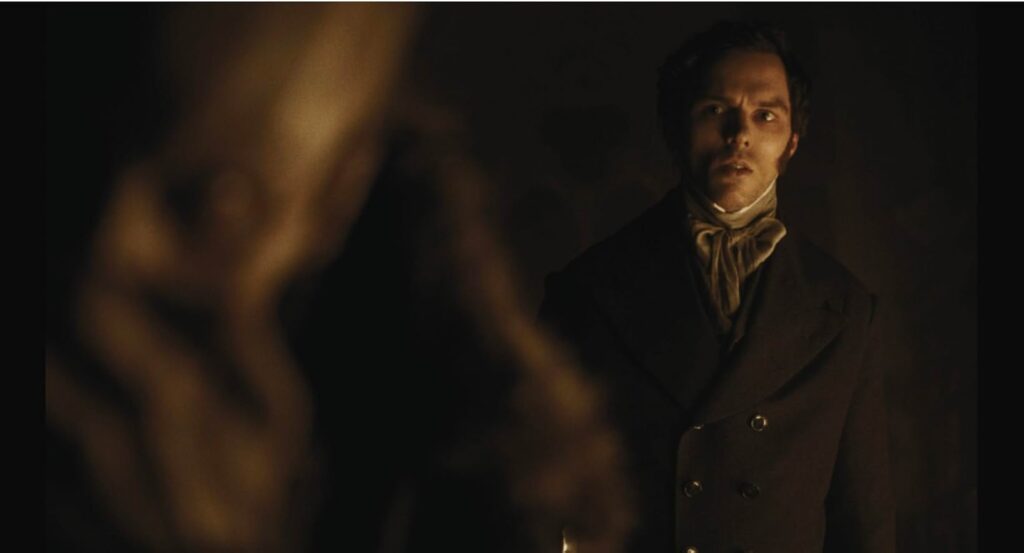
The camera moves like it’s buoyant, slowly drifting through each shot. You become disoriented, unsure where you will end up and what will appear. Really, that’s what good horror is all about – the unknown. You should be unsettled, and you should be on edge. It’s uncomfortable, but it’s thrilling. The long, continuous shot when Thomas enters Orlok’s Manor does just this, following Thomas in real-time. You never quite see Orlok, with the camera trying to avoid eye-contact with him at all costs. In an interview with Variety, cinematographer Jarin Blaschke explains,
Alongside the unnerving ambient noise, it certainly does feel like some serious spell work.
In amongst the sets and scripts, the actors were working hard to bring this vision to life. Skarsgård was unrecognisable as the monstrous vampire, delivering a truly terrifying performance – an act he seems to have mastered over the years. This being said, it was Lilly-Rose Depp who really stole the show. Her portrayal of Ellen was vulnerable yet haunting; it was eerie to watch her embrace this dark side. The more Orlok consumed Ellen, the more we began to see Depp’s full range and potential.
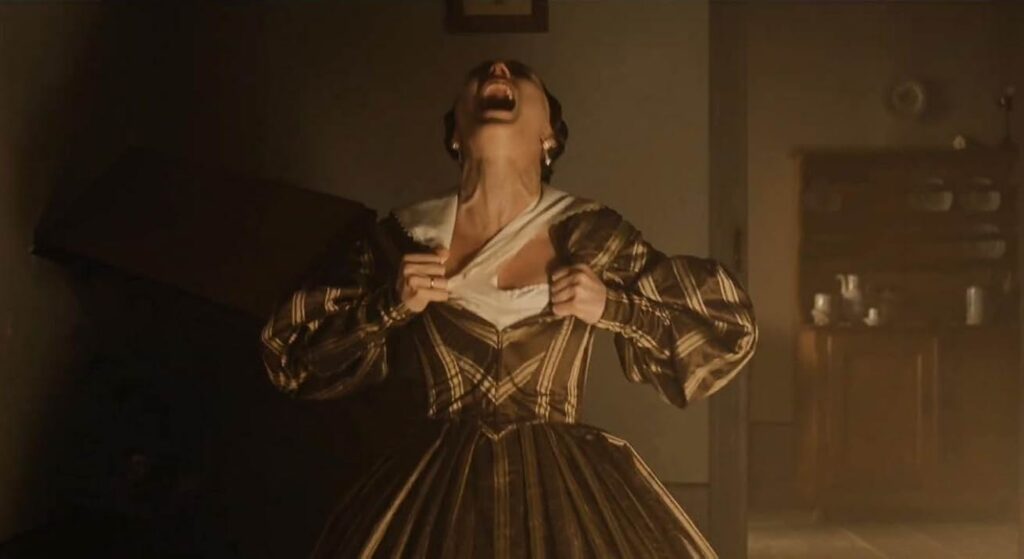
During a scene in her living room, when Thomas finally returns home from his journey, Ellen becomes possessed by Orlok. Depp manages to transform herself into a devilish state, her face contorting and eyes rolling to the back of her head. She looks tormented, crazed and terrifying all at once. Eggers admitted that even her first read was,
This performance really does feel like a crucial turning point in her career – proving her talent in an industry so absorbed by her father’s shadow.
It’s true that the haunting nature of this film may not be for everyone, but gothic horror fans will easily sink their teeth into it. It has bite, hunger and flare. Over 100 years on from the original Dracula retelling, this may not be the first, or last, Nosferatu remake, but it certainly holds its own. Eggers has done an incredible job at immortalising this chilling tale.
